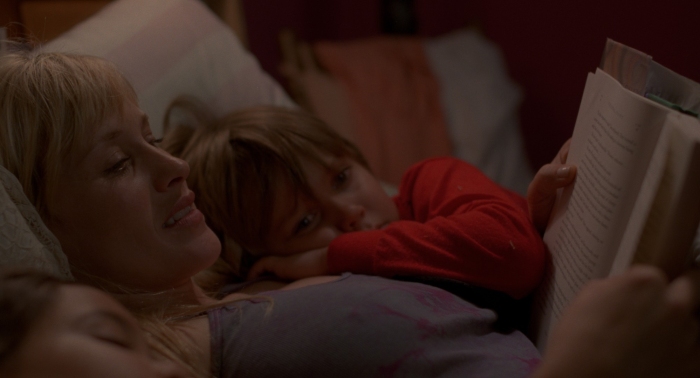By Pete Barell
Arts and Entertainment Editor

Richard Linklater’s “Boyhood” might be the most literal coming-of-age tale ever brought to film. The writer/director is known for his strikingly original stories that are philosophically and dialogue heavy (“Before Midnight” was nominated at the Oscars last year for its screenplay) – but his latest pushes boundaries in a unique way. “Boyhood” was shot over the course of twelve years, using the same actors, and chronicling the family and social life of Texas-born Mason (newcomer Ellar Coltrane) from ages 5 to 18. The viewer is able to watch this character evolve in the most organic, pure lens possible: time.
“Boyhood” kicks off by immediately establishing Mason’s familial troubles – his father Mason Sr. (Ethan Hawke) is seen mostly in visits.His mother Olivia (Patricia Arquette) is attracted to alcoholic men who are poor replacement role models for him and his sister Samantha (Lorelei Linklater, the director’s daughter) to look up to. It’s fun to see Samantha and Mason bicker with each other in their younger years, pointing fingers filled with boy vs girl angst.
The time transitions are seamless, and are as simple as cutting to a new scene. There is a loose, overarching plot, but a lot of breathing room to simply watch these kids grow up. Each year is basically a short film, with new issues faced as Mason matures. He learns about girls, rebuilds his relationship with his father and has defiant moments against bullies. We live through birthdays, camping trips, and first beers in a little under three hours of viewing time (it seems quicker than that, though). The film is a collage of relatable experiences and childhood benchmarks, ultimately culminating in Mason going to college and striking out on his own.
This is a historical film, not only due to its impressive, involved production, but because it morphs with the times. When Linklater started making it, he of course did not know who would win the 2004 Presidential election (or 2008 for that matter). He did not know how technology would change over the years, from Gameboys, to I-Phones and beyond. His project was free to evolve and partially write itself as the world moved alongside it. We see Mason’s liberal father show distain for George W. Bush in 2004. We see how those opinions and events impact Mason and his family, just as they did millions of other American families. The filmmaker never had to recall what the late 1990’s and early 2000’s were like, because he was in them during production.
The soundtrack is swelling with throwback tracks – from Coldplay, to Blink 182 to Arcade Fire. This certainly adds an extra layer of context to the world the film establishes, which will be familiar to many young adults. It’s like finding a bunch of old knick-knacks, posters, CD’s and clothes up in the attic and having a rush of memories. “Boyhood” is a culturally aware, saturated glimpse into growing up as a suburban kid, without the skewed, time-capsule romanticism of a period piece – it constantly examines a series of present days.
“Boyhood” opens on July 11 in New York at the IFC Center, before its nationwide release on July 18. On July 12, Linklater and Coltrane will appear for several Q and A’s at the IFC Center. The film is rated R.
Verdict: A



Be First to Comment